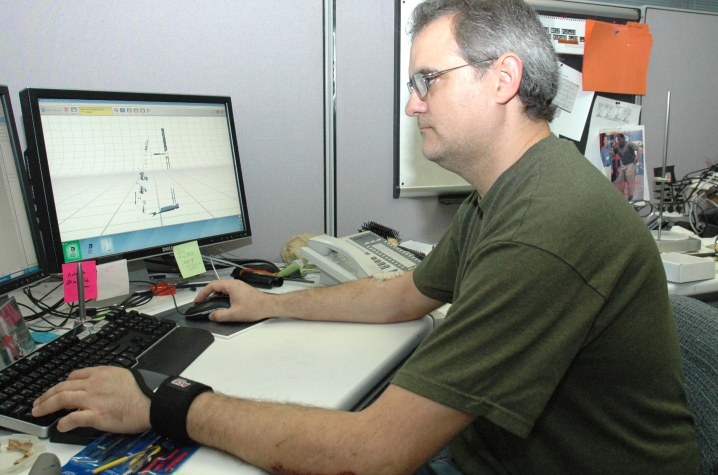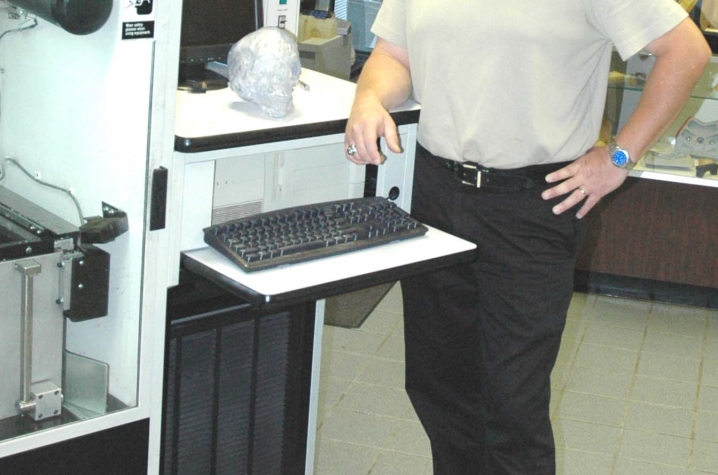Prototyping Unit Helps Move Ideas to Marketplace
LEXINGTON, Ky. (Oct. 12, 2009) -- Several machines stand ready to make the products of the future in the rapid prototyping laboratory in the University of Kentucky's Center for Manufacturing.
Manual and computerized machining equipment tool metal objects. Stereolithography machines use lasers to build objects out of plastic, any shape, from replicas of human skulls to chips for appliances. A laser scanner reverse-engineers parts to make exact copies.
"There's no company in the state of Kentucky that offers all of our services under one roof," says R. J. Robinson, manager of the center's Prototyping and Machine Shop.
Or at such a reasonable cost.
"Recently we did some work for the UK Center for Radiation Medicine. Dr. Ronald McGarry called and said they needed to replace a scale device used with the gamma knife," Robinson said.
The device would replace an existing scale that had broken, making it difficult to treat some patients at the Markey Cancer Center.
"The manufacturer wanted a lot of money to replace the part. We took a look at it and said we could actually improve it for a lower cost, and Dr. McGarry jumped on it," Robinson said.
Robinson and his team, including Charles Arvin, Richard Anderson and Kent VonKuster, took eight weeks to design, refine and make the part.
"The guys from the machine shop built a better device at a fraction of the cost to us… without their help, we would have been dead in the water for some time," McGarry said, in a note of appreciation to Bruce Walcott, director of the Center for Manufacturing.
McGarry's note understates his enthusiasm about the Prototyping and Machine Shop. In a telephone conversation, the amount of his appreciation became much clearer.
"They made some pieces for me that are better designed, better fabricated and a fraction of the cost that we could have acquired commercially," he said.
"The shop is now in the process of designing a whole new body frame for us," he added.
McGarry's experience has become increasingly common at UK HealthCare, which has relied on the Prototyping and Machine Shop for at least 50 projects over the last three years.
Robinson's team has also performed work for other UK units, including the College of Design, the College of Agriculture, the College of Pharmacy and the College of Medicine's departments of Surgery and Physiology. That list doesn't include the College of Engineering, which houses the center and whose Engineering faculty regularly call on the shop's services.
Walcott said the shop, in existence since 1990, traditionally provided prototyping services to industrial clients.
"Our recent focus has shifted to helping entrepreneurs and UK faculty, while continuing our relationship with manufacturers," Walcott said.
The availability of the Prototyping and Machine Shop's services has special meaning for entrepreneurs and faculty who start companies and pursue federal Small Business Innovation Research and Small Business Technology Transfer program grants (SBIR/STTR).
These programs, administered by the U.S. Small Business Administration, offer grants of up to $100,000 to finance six months of proving a concept. Such proofs may include prototypes, Walcott said.
Obviously, this means the shop can play a critical role helping startups qualify for SBIR/STTR grants and meet their grant expectations.
"The prototype proves the concept to the marketplace," Walcott said.






